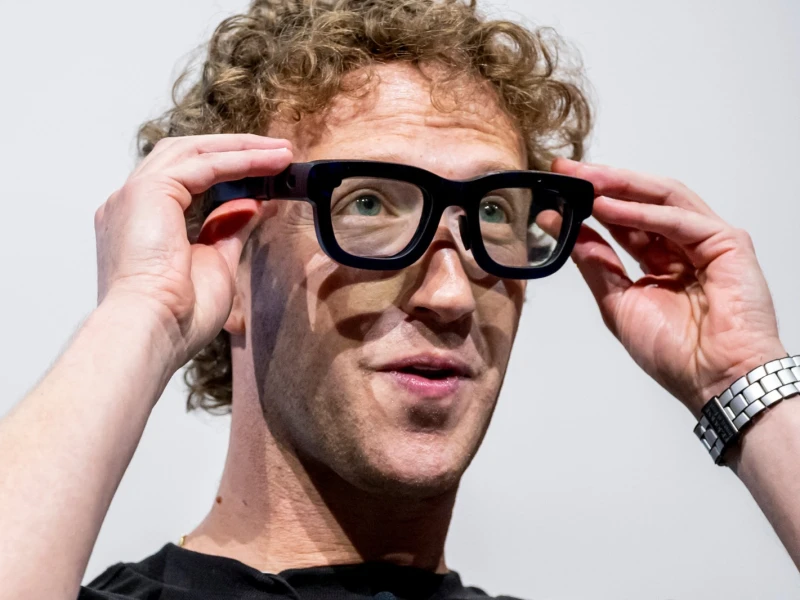Meta took the wraps off its latest hardware innovation — a new pair of Ray-Ban branded smart glasses equipped with a built-in display that shows apps, alerts, and navigation directly on the right lens. The device, called Meta Ray-Ban Display, can be controlled through subtle hand gestures using the Meta Neural Band, a wristband first showcased during last year’s Orion demo.
CEO Mark Zuckerberg announced the launch at the company’s annual developer event, Meta Connect 2025, saying the smart glasses will hit the market on September 30 with a retail price of $799. Unlike Orion — a futuristic prototype — this is a product consumers can actually buy in a matter of weeks.
The Ray-Ban Display marks Meta’s most ambitious push yet into wearable consumer tech, a sector it sees as crucial to reducing reliance on rivals Google and Apple. Despite investing heavily in VR headsets, Meta now views AI-powered smart glasses as its most promising gateway to connect users directly through its own hardware ecosystem.
The device builds on the success of the company’s earlier Ray-Ban Meta smart glasses, developed with eyewear partner EssilorLuxottica, which sold millions of units worldwide. Like its predecessor, the new model features an AI assistant, integrated cameras, speakers, and microphones, enabling users to connect to the cloud for internet access and social apps.
This time, however, the built-in display dramatically expands functionality. Users can access Meta apps such as Instagram, WhatsApp, and Facebook, check directions, and even see live translations directly in their line of sight.
Central to the experience is the Neural Band, which resembles a slim Fitbit without a screen. The band uses electromyography (EMG) to detect neural signals between the brain and hand, allowing users to control apps with tiny hand gestures. Zuckerberg noted that the band offers 18 hours of battery life and is water resistant.
Earlier leaks hinted at the launch, with CNBC and Bloomberg reporting that the glasses, internally codenamed Hypernova, would debut at this year’s Connect. The final reveal confirms Meta’s intent to position itself at the forefront of the smart glasses race.
Still, the Ray-Ban Display is less advanced than the Orion glasses Meta previewed at Connect 2024, which boasted full augmented reality (AR) lenses and eye-tracking. Those futuristic capabilities remain years away from hitting the market.
For now, Meta is betting on being first-to-market with a polished, consumer-ready device — even as rivals like Google and Apple prepare their own smart glasses. Once launched, those products are expected to leverage the deep integration of their respective ecosystems, posing a serious competitive challenge to Meta.


 Prev Post :
Prev Post :
-1758278945.webp)